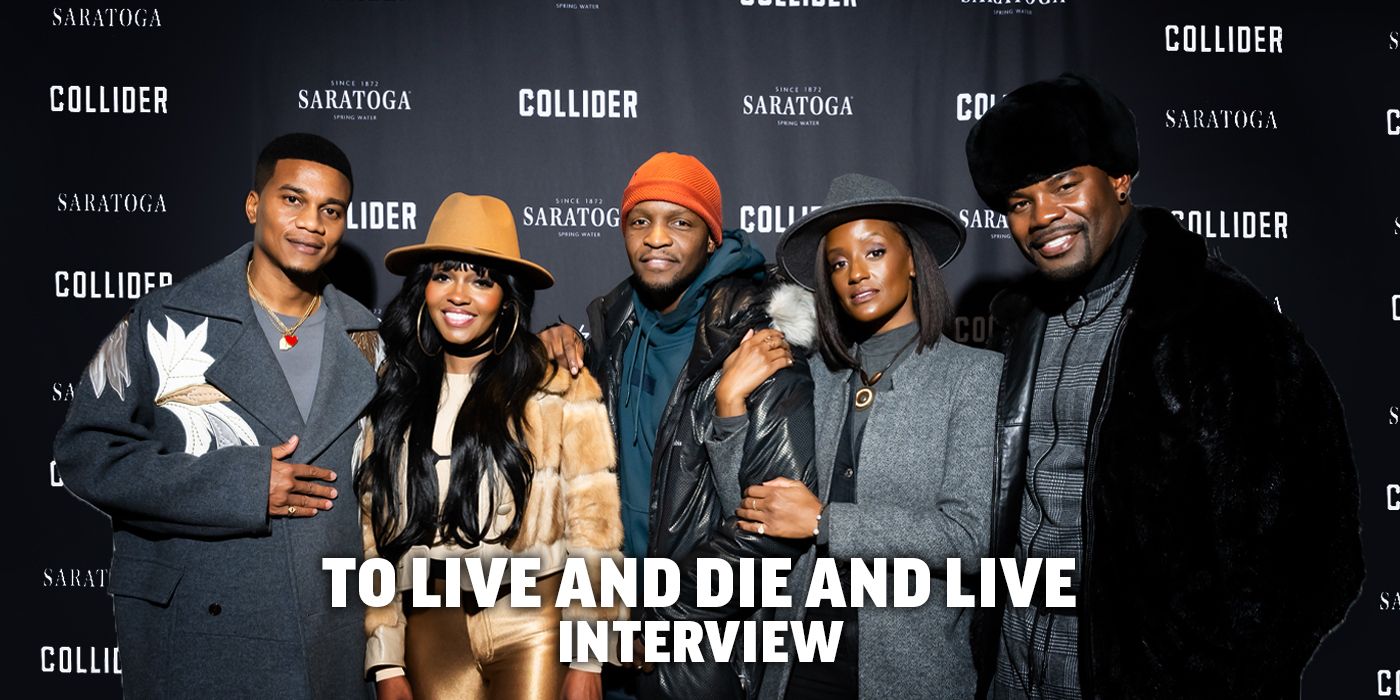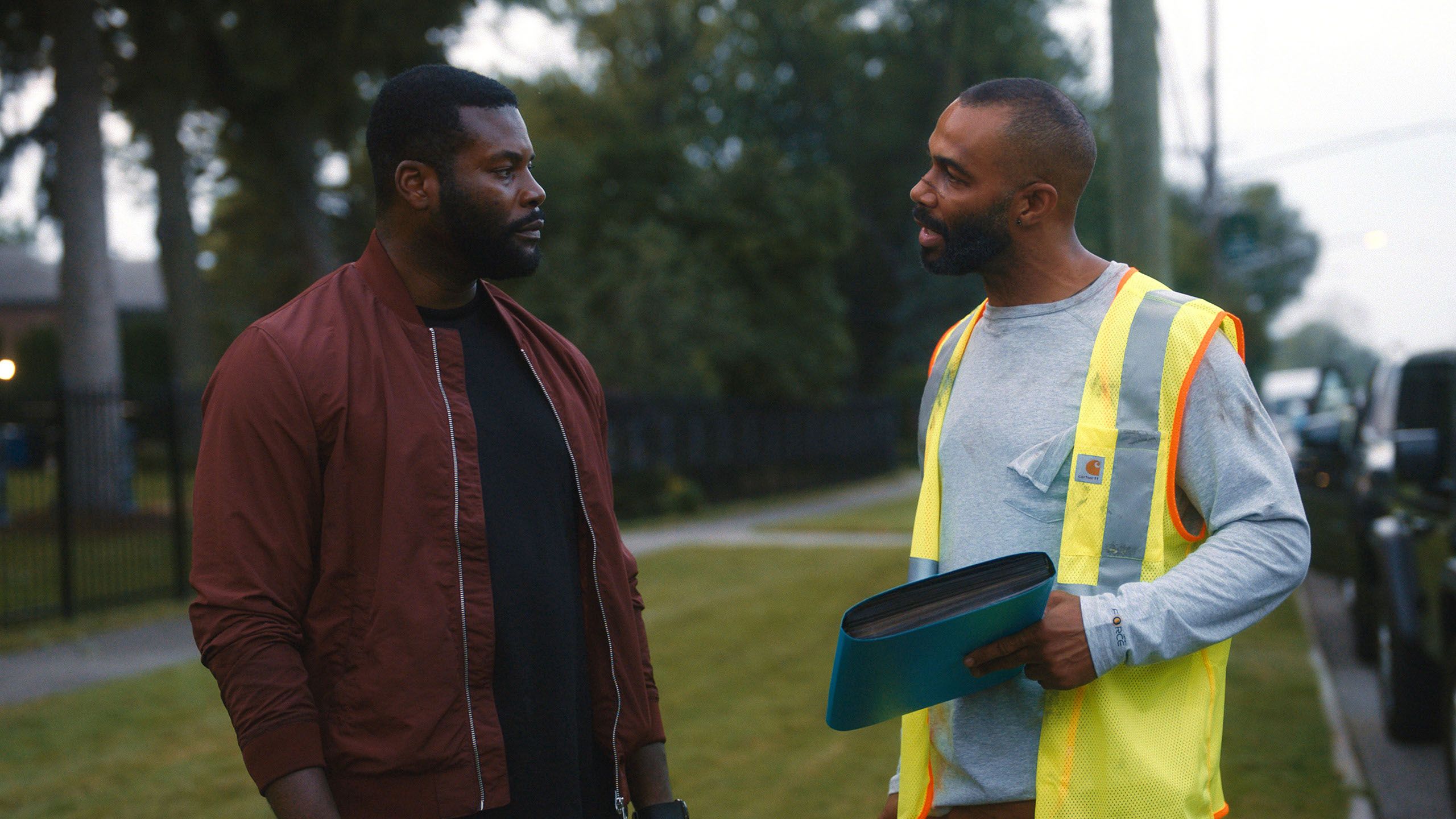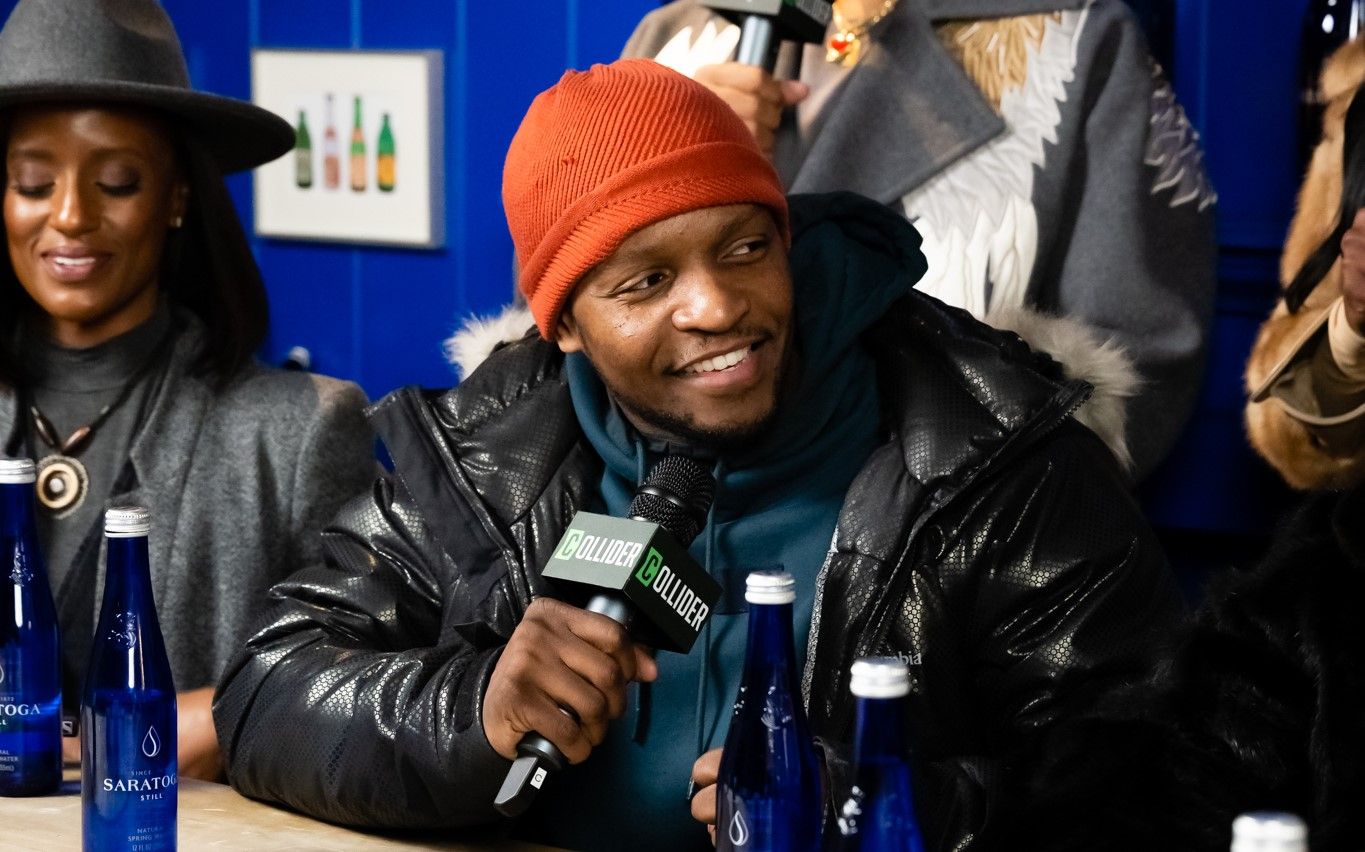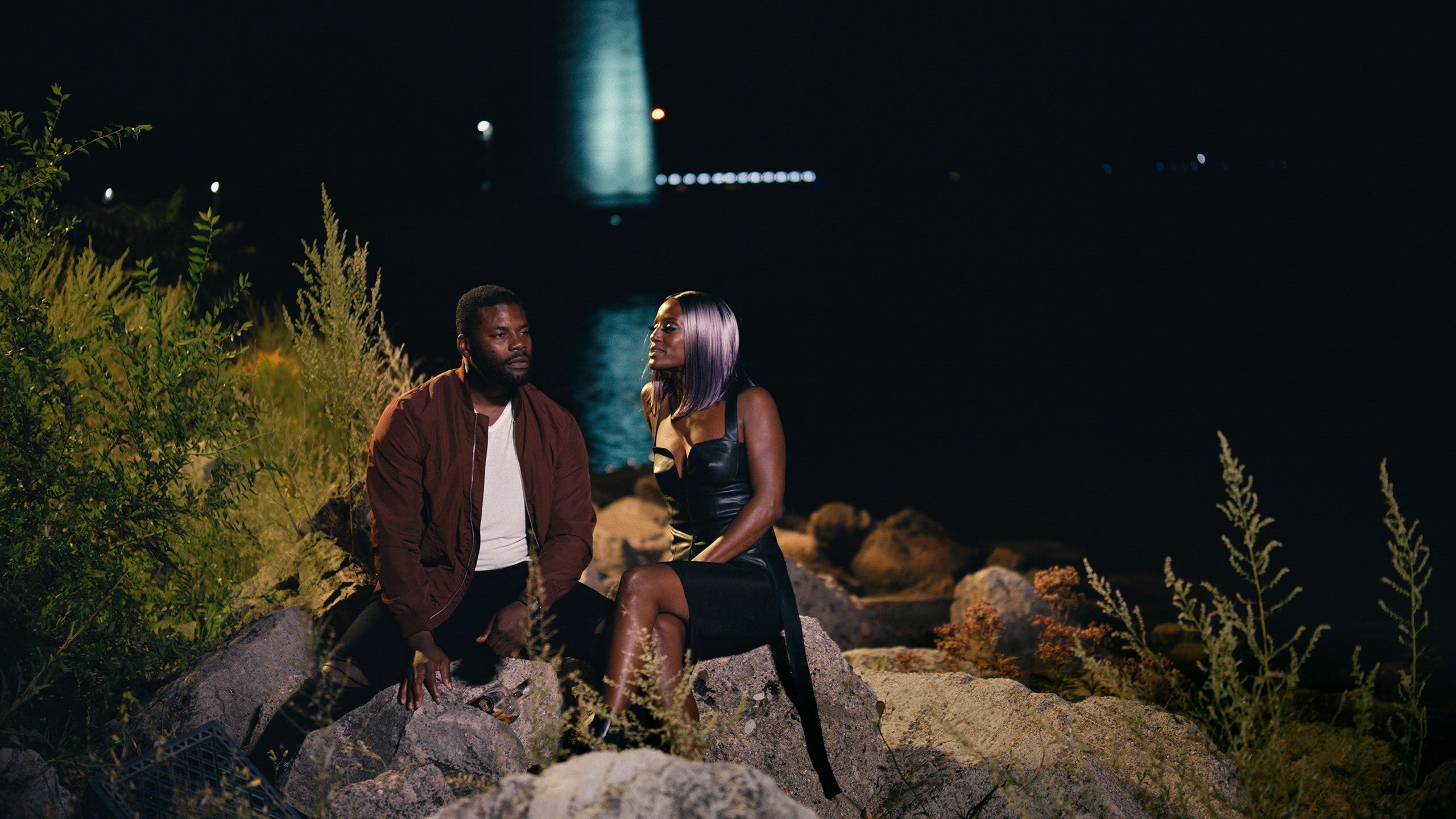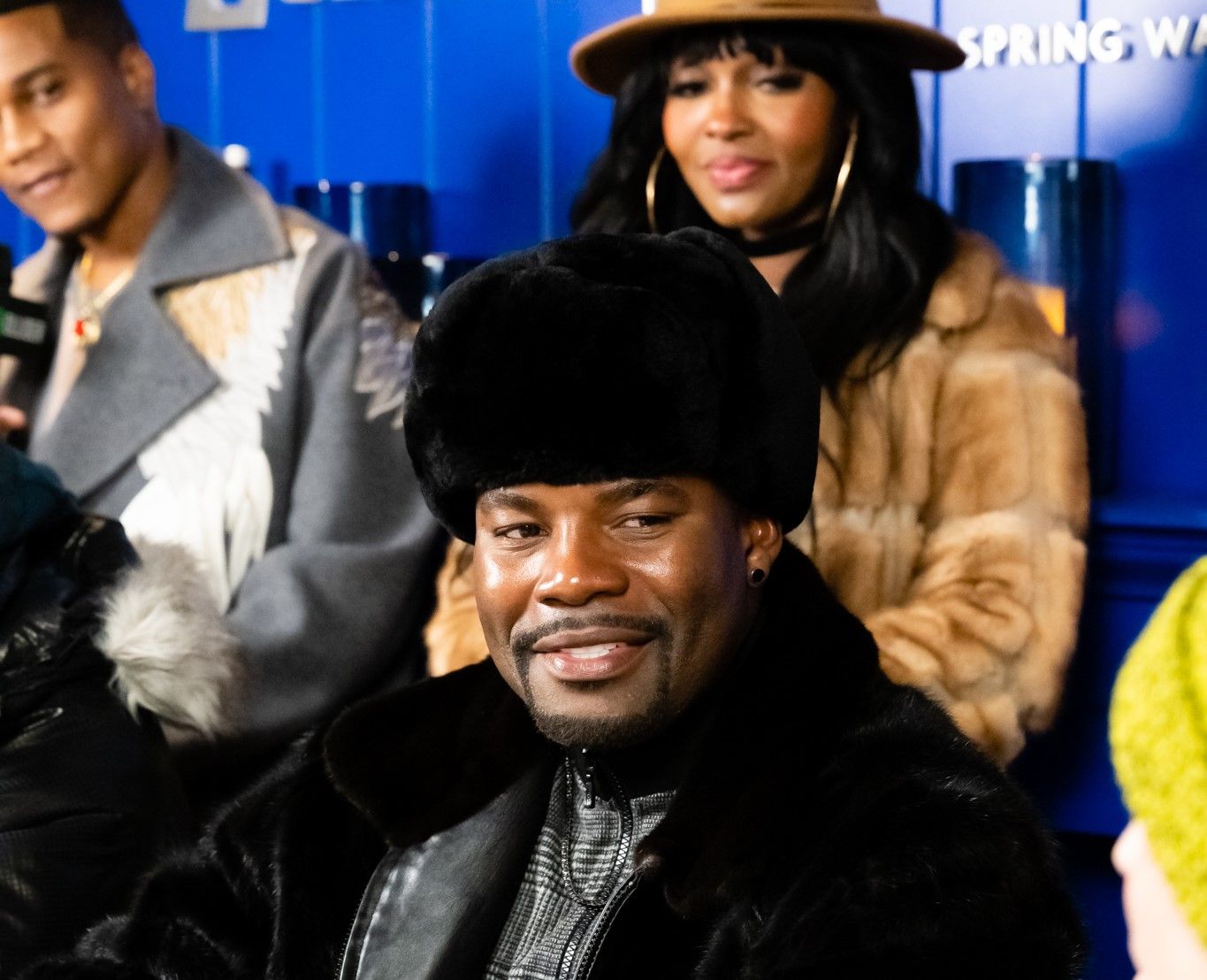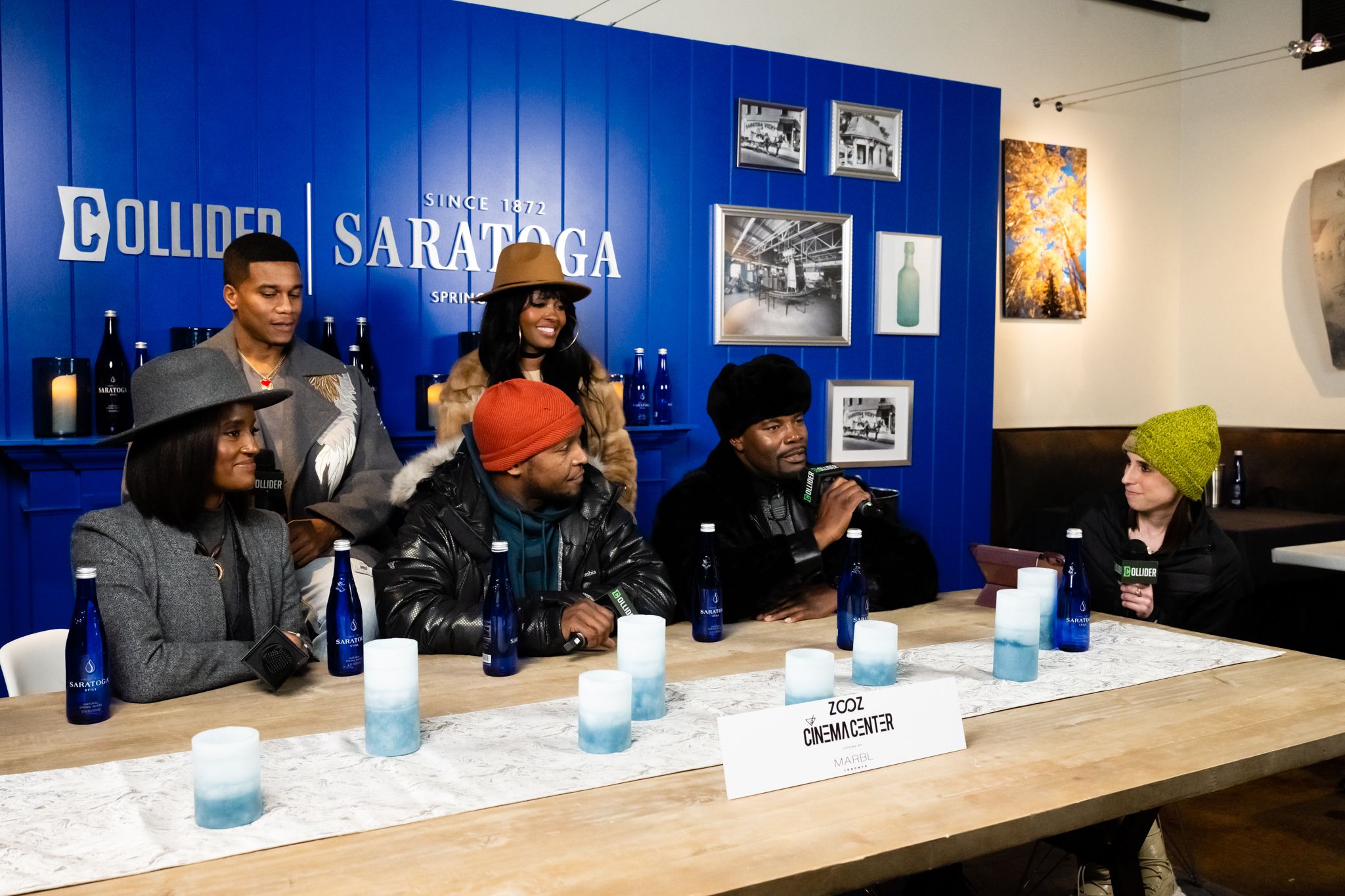Making a film requires maximum passion, patience, and determination. Without those things, there’s a myriad of potential challenges on the path from script to screen that could do a production in -- in particular, an independent production. But fortunately, director Qasim Basir has those key winning qualities and then some, qualities that ultimately landed him a cast that wholeheartedly believes in him and a final film that earned a place on the Sundance 2023 line-up.
Amin Joseph leads To Live and Die and Live as Muhammad, a Hollywood filmmaker who must head home to Detroit after the passing of his stepfather. In addition to processing that grief, Muhammad is also battling addiction and struggling with career challenges, all while his family looks to him as a provider and as a leader.
While in Park City for To Live and Die and Live’s big debut at the 2023 Sundance Film Festival, Basir, Joseph, and co-stars Skye P. Marshall, Maryam Basir, and Cory Hardrict all visited the Collider Studio presented by Saratoga Spring Water to discuss their experience seeing the film through to fruition. Qasim Basir discussed his experience of having the film rejected from the festival and what it took to get it in just a year later, Joseph digs into tackling Muhammad’s complex situation, and the whole cast sings Basir’s praises as a leader on set with incredible access to the resources needed in Detroit.
Hear about that and loads more in the video interview at the top of this article or in the transcript below.
This industry comes with a lot of roadblocks, and I was reading that the film was rejected from last year's festival. It's a pretty big deal to be able to overcome that, forge forward and not get dejected. What was it like processing that and also figuring out what you needed to do to make sure your movie got seen, but while still adhering to your original vision?
QASIM BASIR: Wow, you read up on this! One thing I think you learn, or I hope you learn in this business is patience. I meet people who come to LA or New York or something and say, ‘Alright, I got two years! In two years if I don’t blow up I'm gonna …” I'm like, ‘Alright bro, I'll talk to you in a few.’ [Laughs] But you look at the landscape, and when they initially were like, ‘Look, it's not ready. You need a lot more time with this movie,’ in retrospect, they were right. We sent a very long cut in. It was not nearly what it is. And to be honest, things that become important priorities — my family was a big priority at that time and if I'm trying to complete this movie last winter to make the deadlines for Sundance, I don't get to spend that real committed time with the family that I got to spend. And so, I knew I had to go back at it and that's what resubmitting allowed me to do.
Another question that's gonna reveal how much research I did; you move back to Detroit. That can be a scary thing in this industry, to move away from the hub, from Hollywood or New York, and still feel like you have a chance to make it in this business. For anyone out there who needs to prioritize themselves, but still wants to have a foot in this world, what would you tell them? How did it work for you, and how could it work for them?
QASIM BASIR: I can't answer the second part of that question because everyone's journey is so different. Everyone you talk to who has gained any ground in this industry has a completely different story, for the most part. So I don't know, but maybe my story can give some insight.
For me, it was the pandemic, so we are learning that a lot of things could be virtual. It was me watching my son becoming a pandemic baby who only understood his parents to be home and to be inside, right? Realizing we have all this family back home that he could be around. When it came to it, that became the most important thing.
I'm a writer and director and I can make stuff, so I can make stuff anywhere, and I can write anywhere. If I need to go to LA for meetings, I will do that. I come there once a month. That's fine. And for anyone else trying to break in or whatever, I think you do great work, the work speaks.
I could not agree more with that.
Cory, I want to come your way because I know you've worked with Qasim before. What is something about his approach to the work that’s stayed consistent from film to film, and then, what’s something he accomplished on this one that made even you go, ‘Damn, I can't believe you're capable of that now?’
CORY HARDRICT: Qasim is a brother of mine, but he dared to be great, you know? He said, I'm taking this back home to the D! Shout out to Detroit. And he just believed in it. He loves Detroit. This guy breathes, sleeps, eats Detroit, so it's just like I knew that Detroit had something to offer cinematically and the texture of Detroit, and I knew Qasim was gonna capture all of those things. And he's just so passionate when he's saying, ‘This is gonna work. Sometimes I'm grabbing the camera, I'm gonna be doing everything, but Cory, we got some special,’ and it was on the page. So that's how I knew. When I hear the passion, he just has to call me and I would always be there for him. And you know, we did Destined before, but he takes it a step further. And Amin, Sky, Maryam, his sister, everybody is amazing in this film, and hopefully we’ll win an Oscar one day. I'm going for the nominations.
Speak it into existence. That’s what we do here. We manifest!
HARDRICT: I believe in the power of manifestation! And that's what I believe, you say what you get. So if you say it enough, you're going to get it. And you can do anything on God's green earth, and I do believe that. I moved to LA with $70, true story, and look at me now. I'm at Sundance.
For my supporting ensemble, it’s hard enough to give a full picture of a lead character's life, but you only get so much screen time to work with and you need to support the lead character while also making sure your own feels like they have history and that they’re whole. Can each of you tell me something you came up with that we don't necessarily see on screen or hear about via dialogue, but we can feel it influencing your performance and making your character whole?
MARYAM BASIR: I’ll just say it was very easy for me to connect with Amin, with Muhammad, because it was just so real. There was a lot that happened off screen including him being around our real family a lot in Detroit, [when] my mother was doing the catering for the film. She was around every single day.
That’s a good mom!
MARYAM BASIR: Three sisters, two brothers. We were all there and creating real connections, eating together. I remember Amin told me —I don't like plantains. I don’t anything that's banana related, smell, nothing. He's like, ‘You know, just taste this plantain.’ I'm like, ‘Ehhh, okay.’ And it was really good! I'm like, ‘He's right!’ So things like that happen that just authentically made him feel like a brother, so it was just natural.
SKYE P. MARSHALL: Playing the role of Asia, I pretty much hijacked the character to therapeutically try and heal myself from life experiences. I'm an adult woman with a lot of adult experiences and I didn't necessarily look at it or deal with it. I would avoid it, and you would see that even in Asia's character, and the commonalities that she shared with Muhammad was the avoidance of grief and acceptance and the inevitable. And being able to play Asia with Muhammad was just so, so easy with Amin because Amin just gave me so much permission to be present and unleash the beast inside. Because, as actors, we can have an idea of what we want to do, but when you realize your scene partner is not watching you perform, your scene partner is in it with you …
MARYAM BASIR: And Amin challenges you!
MARSHALL: He’s not waiting for his next line, you know? He’s feeling it as you go, which makes you have to feel it as he goes. You just stay so present in the moment, and that's what I did with Asia, was just to stay as grounded as humanly possible, but also feel everything that I was feeling.
HARDRICT: I’m [gonna] be quick. My thing is [my] character is short and sweet, but it's a pivotal character in Muhammad's life. I feel like I show [the] vulnerability of what every black man goes through in this country and across the world, and even though we were coming from the inner city of Detroit, we still feel as human beings. They’re just scared. You know, the police. No matter what, we're all scared of the police when especially a black man at four or five in the morning, you get out, hands up. There's no cameras out there, really. It's just you and the police. To show that moment, that real moment of what we deal with in society today, and to just tell them, I'm scared for my life, it's like he spoke for every black man in the world at that moment. So I love the vulnerability of my character.
Amin, Muhammad's got a lot on his plate in this movie. Of everything he’s going through, of everything he's trying to deal with, which specific elements of that character did you think would be most challenging and then ultimately, was that the most challenging or did something else about him catch you by surprise?
AMIN JOSEPH: I initially thought that the most challenging thing would be the functioning addiction of it all because he's dealing with the anxiety of burying his stepfather and he's already a functioning addict. So how would I approach his behavior, his highs and lows in the context of grief, the death of someone that is pivotal? Part of the foundation of who this man is, he's losing, and he has to bury him so quickly because of his culture. That's what I initially thought would be the most challenging aspect of filming and of Muhammad.
What actually became the hardest thing is the consistency of going through a 20-some day shoot that was as taxing emotionally as it was physically. And to not go to sleep at night, because Muhammad just wouldn't sleep at night, and turn around and give, hopefully, a 12-hour day performance. [Laughs]. Hopefully, right? But that grind, there’s just a physical toll. It took me a while coming back to decompress, and enter Sheikh Mohammed.
When you're playing a character who’s dealing with so much, has knee-jerk reactions to things, expresses warmth and love to his family — I could go on and on listing things — do you have to come up with an anchor or a guiding light so that no matter what headspace he's in, you always know every choice he makes is based in some sort of consistent truth?
JOSEPH: Yeah, I have to do that just for me personally. But my cast, I have a phenomenal cast here. They're so giving that I could depend on the family for a certain anchor of support. I could depend on the Muslim faith, and that I would actually have to learn while I was filming. I could look at Sky, I could look at Cory, Omari [Hardwick], I could look at Omar [Regan], I could look at Maryam and in those eyes I realized that this is a living, breathing production, and this is a story to tell that Qasim so wonderfully wrote that I can live in. I don't have to make up anything here. The words will follow. Just follow the story and be vulnerable enough. [To Qasim] Thank you for the opportunity to be vulnerable, to be human. It's the most vulnerable I've ever been, and it’s really hard watching it because there's a vulnerability of two years ago, and I have a vulnerability of just talking right now. So it's an honor, it's a privilege to create art like this, and that’s what, really, at the end of the day, meant the most to me.
What a beautiful answer.
MARYAM BASIR: And I want to say that we felt your vulnerability and it was hard for us to watch, too, just as an audience because we all felt that vulnerability through your performance.
HARDRICT: It’s like this movie has a spirit. There's a spirit with the movie. It's kind of like the underdog story. Qasim’s an actor's dream. Every actor wants to be in a film with Qasim. I said it earlier, it's kind of like he grabs a camera and he just walks into the neighborhood, and we just get behind it and jump in the camera.
MARSHALL: You know how a movie has some huge celebrity, right? We'll just say, I don't know, Denzel Washington. Detroit was like a Denzel Washington, right? Meaning it was a character in the film. I've never seen a filmmaker have access the way that [Qasim] does, like he has a Denzel in the movie, which is Detroit. The man got into the airport in August of 2021. Everybody had on masks. All the way to the gate! With cameras! And two actors with their masks off. How did you do that?
HARDRICT: And they got 15 minutes to do! [Laughs]
MARSHALL: [Laughs] There was always something like, ‘Okay, y’all need to wrap it up or I'm gonna lose my job.’ Detroit just lended the city to Qasim. I've never seen anyone have that kind of connection to so many human beings in a city in my entire experience in this industry.
MARYAM BASIR: And it's because of who he is and what he's already done for Detroit in his film making history. And because of that, people who are from Detroit, they're gonna recognize that rock scene. They're gonna know exactly where that was. They know every bridge and they're gonna recognize those things and it makes it more authentic.
QASIM BASIR: I gotta say, with all this too, I gotta say thank you to my cast for trusting because you didn't know all that before you came to Detroit. [Laughs]
JOSEPH: I didn't know what was hopping on the plane [for]. I got on the plane, I didn’t know.
QASIM BASIR: Cory knew because he'd been out there before and he's been on the ride with me before.
JOSEPH: But I just want to say, bro, to show up as an actor and you don't know, what's today gonna be like? This is an independent film in Detroit, and to see your filmmaker with the camera on his back. I tell Qasim this all the time; I've never shot a film where the man carried the film on his literal back. No massages. We didn't have any time off. This man had the actual rig on his back, and it's a tough shoot and it's a lot of walking. It’s just a physical shoot as well.
QASIM BASIR: And it was hot.
JOSEPH: Watching this man, you know, I can’t take off! I'm looking at him, he’s strapping this — what was it? A steadicam?
QASIM BASIR: It was the Armorman to hold up the Ronin.
JOPSEH: Easy 50?
QASIM BASIR: It was probably about 60 pounds.
JOSEPH: Easy. Easy!
MARSHALL: And the club scene, we went into an actual club [at] night.
MARYAM BASIR: It was an active club, partying.
MARSHALL: Those were not hired extras. He just had so much amazing access.
HARDRICT: Guerrilla filmmaking. Guerrilla filmmaking at it's fine.
MARYAM BASIR: And it shows. And it shows in the film. The quality is more rich and gritty because of that.
Special thanks to our 2023 partners at Sundance including presenting partner Saratoga Spring Water and supporting partners Marbl Toronto, EMFACE, Sommsation, Hendrick’s Gin, Stella Artois, mou, and the all-electric vehicle, Fisker Ocean.

